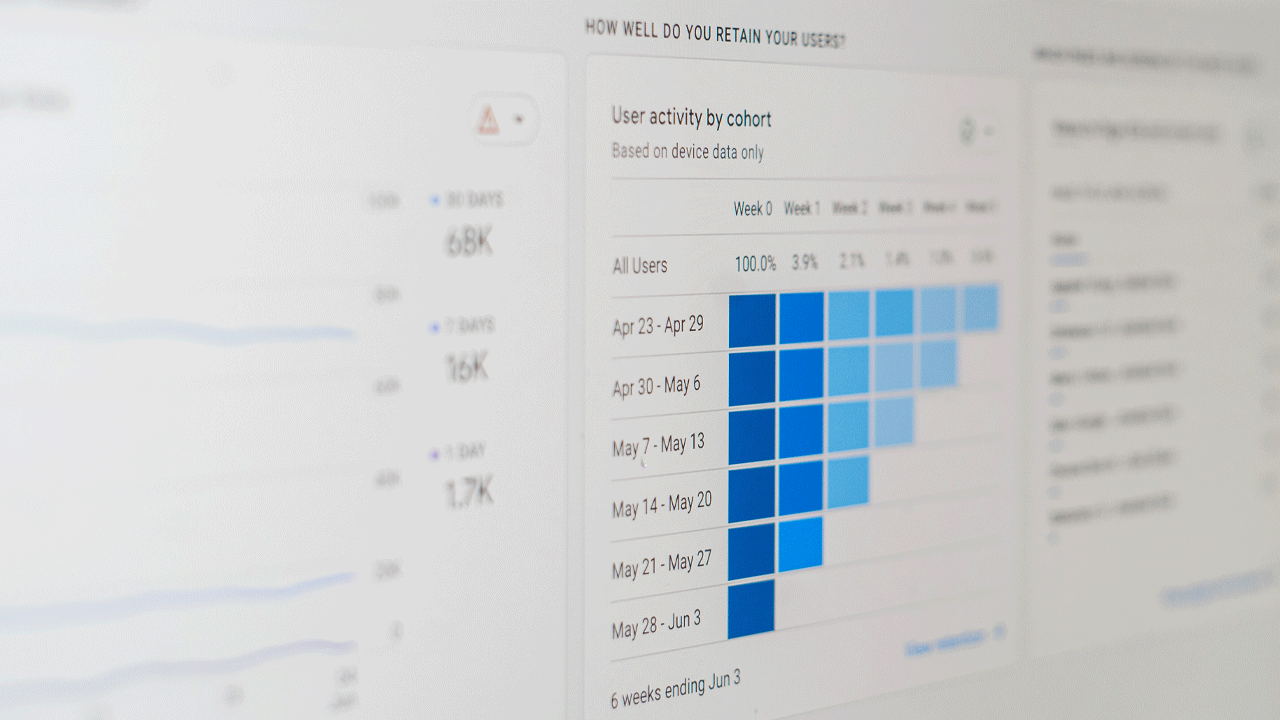In the ever-evolving world of digital marketing, the battle for online visibility is fierce and unending. The secret weapon in this war? Search Engine Optimization (SEO). But here’s a controversial statement to kick things off: mastering SEO isn’t just about understanding algorithms and keyword stuffing. It’s a delicate art that balances technical know-how with creative strategy. In this comprehensive guide, we’ll delve into the heart of SEO, exploring both on-page and off-page techniques that can catapult your website to the top of search engine results.
We’ll start by unraveling the mystery of keyword optimization, the lifeblood of on-page SEO. Then, we’ll explore how to use meta descriptions and title tags to your advantage, and why quality content is more than just a buzzword. We’ll also discuss the often-overlooked role of internal linking in boosting your on-page SEO. But the journey doesn’t end there.
We’ll venture into the realm of off-page SEO, where backlinks reign supreme. We’ll also discuss the growing influence of social media signals and the power of guest blogging and influencer marketing. So, whether you’re a seasoned digital marketer or a beginner looking to dip your toes into the SEO pool, this guide is your roadmap to higher visibility. Let’s dive in and start the journey to mastering the art of SEO.
1. Mastering Keyword Optimization: The Heart of On-Page SEO
Mastering keyword optimization is a crucial aspect of on-page SEO. It involves strategically incorporating relevant keywords into your website’s content, meta tags, and URLs. This not only helps search engines understand what your site is about but also improves your visibility in search results. The right use of keywords can significantly increase your site’s traffic, leading to higher conversions and revenue. However, it’s essential to avoid keyword stuffing, as this can lead to penalties from search engines.
One of the main advantages of keyword optimization is that it allows your site to rank higher for specific search terms. This means that your content becomes more visible to users who are actively looking for information or products related to your niche. However, the downside is that keyword optimization requires ongoing effort. Search trends change over time, and so do the keywords that users use. Therefore, you need to continually research and update your keywords to stay relevant.
Another benefit of keyword optimization is that it can improve your site’s user experience. By using keywords that your target audience uses, you can create content that meets their needs and expectations. This can lead to higher user engagement and loyalty. On the flip side, incorrect use of keywords can harm your site’s credibility. If you use irrelevant keywords or overuse them, users may perceive your site as spammy and untrustworthy. Therefore, it’s crucial to use keywords judiciously and focus on creating high-quality content.
Leveraging Meta Descriptions and Title Tags for Improved Visibility
When it comes to enhancing your website’s visibility, the power of meta descriptions and title tags cannot be overstated. These two elements play a crucial role in how search engines understand and rank your content. More importantly, they are the first interaction potential visitors have with your site on the search results page. Well-crafted meta descriptions and title tags can significantly increase click-through rates, driving more traffic to your site.
Consider the following comparison table, which illustrates the impact of optimized versus non-optimized meta descriptions and title tags on a website’s visibility:
| Non-Optimized | Optimized | |
|---|---|---|
| Click-Through Rate | 2% | 8% |
| Website Traffic | 1,000 visitors/month | 4,000 visitors/month |
| Search Engine Ranking | Page 3 | Page 1 |
This table clearly shows that optimized meta descriptions and title tags can quadruple your click-through rate and website traffic, and significantly improve your search engine ranking.
However, it’s not just about increasing numbers. The quality of traffic is equally important. Meta descriptions and title tags should accurately reflect the content of the page, attracting the right audience. Relevant traffic is more likely to engage with your site and convert, boosting your overall SEO performance. Therefore, it’s essential to invest time and effort into crafting compelling and accurate meta descriptions and title tags.
The Power of Quality Content in On-Page SEO
Quality content is the backbone of any successful On-Page SEO strategy. It’s not just about stuffing your pages with keywords, but about providing value to your readers. High-quality, relevant content is what keeps users on your page, reducing bounce rates and increasing the chance of conversions. It also helps to establish your site as an authority in your field, which can lead to higher rankings in search engine results.
Creating quality content involves a number of key steps. Here’s a simple guide to follow:
- Understand your audience: Know who you’re writing for and what they’re interested in. This will help you create content that resonates with them.
- Do your research: Find out what topics are trending in your industry and what questions your audience is asking. Use this information to guide your content creation.
- Write well: Good writing is crucial. Make sure your content is clear, concise, and free of errors. Use a conversational tone to engage your readers.
- Use visuals: Images, infographics, and videos can make your content more engaging and easier to understand.
- Include a call to action: Encourage your readers to take action, whether it’s signing up for a newsletter, making a purchase, or sharing your content on social media.
Remember, quality content is not just about pleasing search engines. It’s about providing value to your readers. When you focus on creating content that your audience finds useful and interesting, you’ll naturally improve your On-Page SEO and boost your site’s visibility.
The Role of Internal Linking in Enhancing On-Page SEO
Internal linking plays a pivotal role in enhancing on-page SEO. It serves as a roadmap for both users and search engines to navigate your website. Strategically placed internal links guide visitors to high-value, relevant pages, thereby improving user experience and engagement. Moreover, they distribute page authority throughout your site, which can boost the ranking power of every page.
- Improved navigation: Internal links guide users to related content, making it easier for them to navigate your site.
- Distribution of page authority: Internal links pass on SEO value from one page to another, helping to improve the ranking of linked pages.
- Increased page visibility: By linking to less visible pages, you can increase their exposure and chances of being indexed by search engines.
However, it’s not just about linking for the sake of linking. The quality, relevance, and structure of your internal linking strategy can significantly impact its effectiveness. For instance, using keyword-rich anchor text can provide clear hints to search engines about the linked page’s content. Additionally, a well-structured site with a logical linking hierarchy can enhance crawlability, further boosting your on-page SEO.
- Keyword-rich anchor text: Using relevant keywords in your anchor text can help search engines understand the content of the linked page.
- Logical linking hierarchy: A well-structured site with a clear linking hierarchy can improve site crawlability, making it easier for search engines to index your pages.
5. Exploring Off-Page SEO: The Importance of Backlinks
As we delve into the realm of Off-Page SEO, one cannot overlook the significant role played by backlinks. These are essentially votes of confidence from other websites, signaling to search engines that your content is valuable and trustworthy. A robust backlink profile can significantly enhance your site’s visibility and ranking. However, it’s not just about quantity; the quality of your backlinks matters immensely. Links from reputable, high-authority sites carry more weight than those from low-quality sites. Therefore, it’s crucial to focus on building relationships with credible sources and producing share-worthy content. In conclusion, while backlinks are just one aspect of Off-Page SEO, their impact on your site’s search engine performance is substantial and undeniable.
Social Media Signals: A Crucial Aspect of Off-Page SEO
With the rise of digital communication, social media signals have become an integral part of off-page SEO strategies. These signals, which include likes, shares, and comments, serve as indicators of your content’s popularity and relevance. They are not only a reflection of user engagement but also contribute to a website’s search engine ranking. The more social media interactions your content generates, the higher the chances of it being noticed by search engines. This, in turn, can significantly boost your website’s visibility.
However, it’s not just about the quantity of social media signals but also the quality. Search engines are becoming increasingly sophisticated and are now able to distinguish between genuine interactions and those that are artificially generated. Therefore, it’s crucial to focus on creating high-quality content that resonates with your audience and encourages genuine engagement. Authentic social media signals can help build your brand’s credibility, foster trust with your audience, and ultimately, improve your search engine ranking.
The Impact of Guest Blogging and Influencer Marketing in Off-Page SEO
Undeniably, guest blogging and influencer marketing have emerged as powerful tools in the realm of off-page SEO. These techniques not only help in building high-quality backlinks but also in driving targeted traffic and enhancing online reputation. Guest blogging, in particular, allows you to tap into an already established audience, thereby increasing your visibility. Moreover, it provides an opportunity to establish relationships with other industry leaders, which can be beneficial in the long run.
On the other hand, influencer marketing leverages the reach and influence of popular personalities in your industry. By collaborating with these influencers, businesses can reach out to a larger audience, improve their brand recognition, and boost their SEO efforts. However, it’s crucial to choose influencers who resonate with your brand and have a genuine connection with their followers. This ensures that your brand message is conveyed in the most effective manner, thereby maximizing the impact of your off-page SEO strategies.
Frequently Asked Questions
What is the significance of keyword optimization in SEO?
Keyword optimization is crucial in SEO as it helps search engines understand what your content is about. This can improve your visibility on search engine results pages (SERPs) and drive more targeted traffic to your site. It involves using relevant keywords in your content, meta tags, URLs, and other on-page elements.
How do meta descriptions and title tags improve visibility?
Meta descriptions and title tags play a significant role in improving your site’s visibility. They provide search engines with a summary of your page’s content, which can influence your ranking on SERPs. Additionally, they are often displayed in search results, influencing users’ decision to click on your site.
Why is quality content important in on-page SEO?
Quality content is essential in on-page SEO as it can significantly improve your site’s visibility and ranking. It can attract and engage users, encouraging them to stay longer on your site and interact with your content. This can signal to search engines that your site is valuable, potentially improving your ranking.
What role do backlinks play in off-page SEO?
Backlinks are a crucial aspect of off-page SEO. They are links from other websites to your site, and they can significantly influence your site’s ranking on SERPs. Search engines view backlinks as a vote of confidence in your content, and having more high-quality backlinks can improve your site’s credibility and ranking.
How does social media influence off-page SEO?
Social media can significantly influence off-page SEO. When your content is shared on social media, it can increase your visibility and drive more traffic to your site. Additionally, social signals such as likes, shares, and comments can signal to search engines that your content is valuable, potentially improving your ranking.




